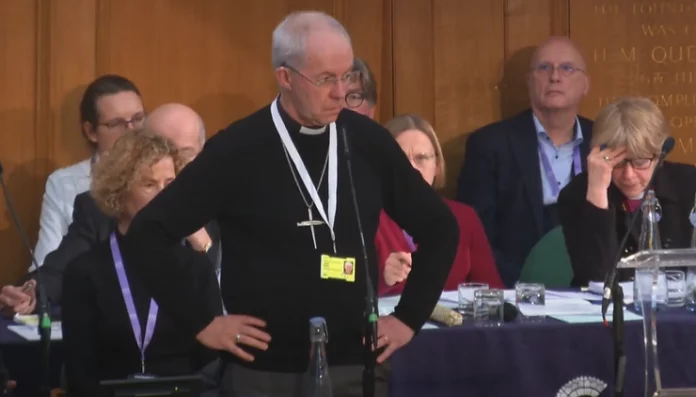The list of issues Justin Welby has intervened on since becoming Archbishop of Canterbury is long. He has railed in the Church Times against Remainers “whingeing”. He has come out against payday lending sites, Universal Credit and tax avoidance. He has told everyone he thinks Brexit is dividing the country. More recently, he has consistently condemned the government’s plans to send asylum seekers to Rwanda. In 2022, he said the plans were “the opposite of the nature of God”.
This might not surprise you given how the Church and state are fused in Britain. Along with 25 other bishops, Welby sits in the House of Lords. He is a legislator. And yet, his authority is inseparable from his position outside and above politics. The risk is, therefore, that each time he intervenes and pushes himself into the minutiae of politics, he dulls the blow.
This was not always the case. When Welby’s predecessor Rowan Williams condemned the coalition government in a 2011 issue of the New Statesman, he elicited a reaction from No 10 and senior ministers that showed his attack had landed. That’s not to say the coalition halted austerity or stalled its public-service reforms. But it triggered a debate that would not have occurred had Williams not held the respect he did.
Welby was met with a different reaction when he took aim at Labour over the weekend. In yesterday’s Observer, he called for the party to scrap George Osborne’s two-child benefit cap which he views as causing a rise in poverty.
Read it all in The New Statesman










